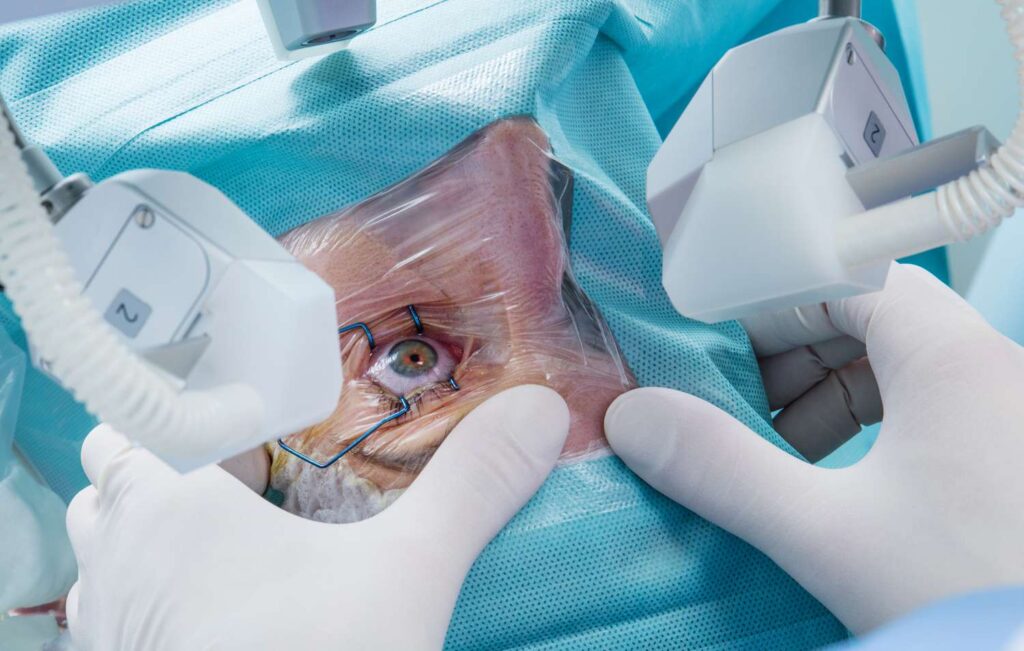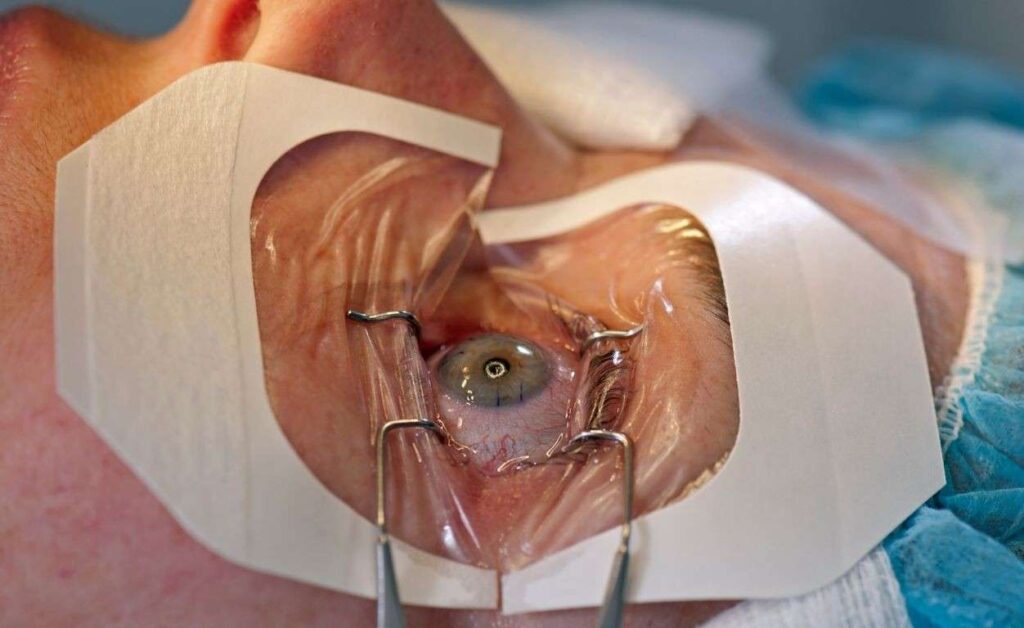Laser eye surgery has become a popular choice for those seeking to correct vision problems and reduce dependence on glasses or contact lenses. If you’re considering this life-changing procedure, you likely have several questions. To help you make an informed decision, we’ve compiled answers to the top 10 questions about laser eye surgery. This guide is designed to provide clarity and insights into the process, benefits, risks, and recovery.
1. What is Laser Eye Surgery?
Laser eye surgery is a medical procedure that uses lasers to reshape the cornea, improving the eye’s ability to focus light onto the retina. Common types include LASIK, PRK, and SMILE. These surgeries address refractive errors like myopia (nearsightedness), hyperopia (farsightedness), and astigmatism.
The procedure is typically quick, taking around 30 minutes for both eyes. The advancements in technology have made it safer and more effective than ever, providing many individuals with clear, unaided vision.
2. Am I a Good Candidate for Laser Eye Surgery?
Not everyone is eligible for laser eye surgery. Ideal candidates should:
- Be at least 18 years old (or as advised by a specialist).
- Have stable vision for at least a year.
- Be in good general health.
- Have no eye diseases like glaucoma or cataracts.
A thorough eye examination is essential to determine if the procedure suits you. The keyword “best laser eye surgery“ comes into play when researching reputable clinics and surgeons to evaluate your candidacy.

3. What are the Benefits of Laser Eye Surgery?
The benefits of laser eye surgery extend beyond vision improvement. Here are some key advantages:
- Quick Results: Most patients notice a significant improvement in vision within 24 hours.
- Reduced Dependence on Glasses: You may no longer need glasses or contact lenses.
- Long-lasting Effects: The results are permanent for the vast majority of patients.
- Enhanced Lifestyle: Activities like swimming, sports, and driving become more convenient.
These benefits have made laser eye surgery a sought-after solution for vision correction worldwide.
4. What are the Risks Involved?
Like any surgical procedure, laser eye surgery carries some risks. However, complications are rare due to advancements in technology and skilled practitioners. Possible risks include:
- Dry eyes.
- Halos or glare, especially at night.
- Undercorrection or overcorrection.
- Flap complications (in LASIK procedures).
Choosing the best laser eye surgery providers significantly minimizes these risks. Experienced surgeons ensure meticulous care during and after the procedure.

5. What Happens During the Procedure?
Laser eye surgery is a straightforward process. Here’s what you can expect:
- Preparation: Anesthetic eye drops are applied to numb the eyes.
- Creation of a Corneal Flap: In LASIK, a thin flap is created on the cornea.
- Laser Reshaping: The cornea is reshaped using a precise laser to correct vision.
- Repositioning the Flap: The flap is repositioned and acts as a natural bandage.
The procedure is painless, though some pressure may be felt. PRK and SMILE involve slightly different steps but yield similar outcomes.
6. How Long is the Recovery Process?
Recovery times vary depending on the type of laser surgery. Most LASIK patients experience improved vision within 24 hours, while PRK may take a few days longer. General recovery tips include:
- Resting your eyes for the first 24 hours.
- Avoiding strenuous activities for a week.
- Using prescribed eye drops to prevent dryness and infection.
The recovery process is smooth for most patients when postoperative instructions are followed diligently.
7. How Much Does Laser Eye Surgery Cost?
The cost of laser eye surgery varies by location, surgeon, and technology used. In the United States, the average cost ranges from $2,000 to $4,000 per eye. While this may seem significant, consider it a long-term investment in your vision.
Researching the best laser eye surgery clinics will help you find options that balance quality and affordability. Many clinics also offer financing plans to make the procedure more accessible.

8. Are the Results Permanent?
For most patients, the results of laser eye surgery are permanent. However, natural aging processes like presbyopia (difficulty focusing on close objects) may still require reading glasses later in life.
Maintaining regular eye check-ups ensures that your eyes remain healthy and any potential issues are addressed promptly.
9. Can Laser Eye Surgery Treat All Vision Problems?
Laser eye surgery is effective for correcting many refractive errors, including:
- Myopia (nearsightedness).
- Hyperopia (farsightedness).
- Astigmatism (irregular cornea shape).
However, it may not be suitable for conditions like severe glaucoma, cataracts, or retinal diseases. For issues like “glaucoma symptoms floaters,” consulting a specialist is essential to explore alternative treatments.
10. What Should I Look for in a Surgeon or Clinic?
Choosing the right surgeon and clinic is crucial for a successful outcome. Here are some factors to consider:
- Experience: Look for surgeons with a proven track record.
- Technology: Ensure the clinic uses advanced, FDA-approved equipment.
- Patient Reviews: Read testimonials and reviews to gauge patient satisfaction.
- Consultation: Schedule a consultation to discuss your concerns and assess the clinic’s professionalism.
Opting for the best laser eye surgery providers gives you confidence in achieving optimal results.
Conclusion
Laser eye surgery is a transformative procedure that offers numerous benefits, from improved vision to enhanced quality of life. By understanding the process, potential risks, and recovery steps, you can make an informed decision. For those considering this surgery, researching reputable clinics and asking questions ensures a safe and successful experience. Whether you’re tired of glasses or seeking a permanent solution to vision problems, laser eye surgery might be the answer you’ve been searching for.
Related: Top Questions Answered About Glaucoma Surgery and Recovery


